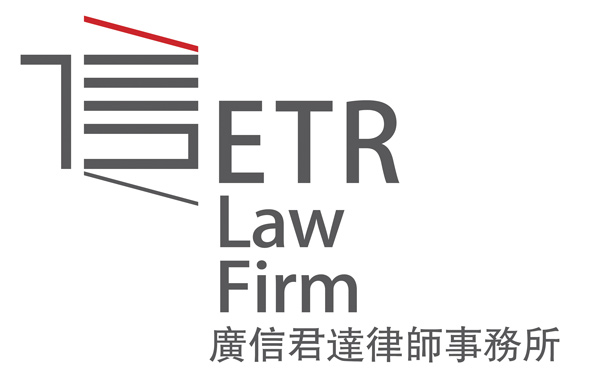Complex civil cases are often intertwined with intricate legal relationships that are filled with uncertainties. This article discusses how to scientifically analyse sensitive factors and uncertain risks in civil cases through case studies, and aims to assist lawyers to work on complicated cases with ease.
Case profile

Partner
ETR Law Firm
In May 2017, company A and company B signed a land use rights transfer contract, with company B transferring state-owned construction land use rights in a municipal new area to company A for consideration.
Company A paid the transfer price to company B as agreed, and company B delivered the original land use rights certificate, land grant premium contract and invoice to company A. In August 2017, the city’s Planning and Natural Resources Bureau issued a circular on the unified expropriation of land in the new district and ceased to process the registration and transfer procedures for real estate transactions there.
As a result, the parties were unable to complete the transfer procedures and the land in question was registered in the name of company B without being developed and constructed by company A.
In June 2019, company C sued company B for repayment of the loan principal of RMB25 million (USD3.5 million) along with interests and liquidated damages. Company B did not contest company C’s lawsuit and, as a result, a district court issued a civil judgment supporting all the claims. As company B did not appeal, the judgment took effect.
Subsequently, company C applied for compulsory execution of the land in question in the name of company B. As company B concealed that the land had been transferred, the court hosted an auction and the bid was successfully made by an outsider, company D.
The court served the Planning and Natural Resource Bureau with the ruling of a successful auction as well as an execution notice to assist in the transfer registration, and issued a case closure notice. It was not until company A learned that the land had been auctioned off that it started to seek legal ways to defend its rights and retrieve ownership.
So far, the case has lasted for five years. Company A, along with our team of attorneys, has passed through judicial procedures such as execution objection, complaint, execution supervision and criminal proceedings with an incidental civil litigation case. We found that the debt judgment between company B and company C is a false litigation, of which company B and its responsible person were convicted. With the unremitting efforts of the attorney representing the case, significant progress has been made as company A successfully revoked the court’s executive auction.
Response and advice
How do lawyers handle the risks of great uncertainty when representing complex civil cases?
In the field of investment in economics, most of the data used in project evaluation are from predictions and estimations, with some degree of uncertainty. Therefore, uncertain indicators are also analysed when evaluating factors that have economic effects on investment and financing projects. Just like these projects, complex civil cases are also full of uncertainties. The author believes that uncertainty analysis in such cases should include a balancing analysis of the evidence and the applicable law, coupled with a sensitivity analysis triggered by the case.
A balancing analysis means that the case can achieve a balance between the offensive and defensive powers of the two parties in terms of law application and evidence produced by them. In plain terms, the litigation outcome is “neither loss nor win”, and that the case is decided “based on facts and the law”.
A sensitivity analysis refers to the identification of sensitive factors by analysing the increase or decrease in uncertainties, their impact on the outcome, and the degree of impact. Sensitive factors are those that affect the process and outcome of cases, and may have a significant impact on the outcome, including the judicial environment in the case’s region, the professional quality of judges, the attorneys’ work ethic and level of professionalism, the influence of extrajudicial relationships or social opinion on judges, political factors and governmental causes.
The more a case is affected by sensitive factors, the higher the risk of uncertainty.
Therefore, when dealing with a complex civil case, in addition to a legal analysis of the merits of the case, the evidence and the balance in the application of legal relations, it is also necessary to analyse uncertain sensitive factors.
In accepting representation, the lawyer should assess two risks. First is the litigation risk that may arise from the case itself. This requires the lawyer to analyse and judge the case based on elements such as the merits, the evidence and legal provisions in the light of professional knowledge and experience, and to fully analyse existing sensitivity factors of the case.
Second is the professional risk that comes with undertaking complex civil cases. Lawyers cannot make promises to clients about the progress and outcome of the case. They are advised to analyse the case with the client and to jointly formulate a representation plan. In such cases, lawyers definitely should not avoid their clients by “working behind closed doors”, otherwise they may be exposed to a professional risk of complaints.
Conclusion
Nassim Nicholas Taleb wrote in Anti-fragile: Things That Gain from Disorder, that: “Some things benefit from shocks; they thrive and grow when exposed to volatility, randomness, disorder and stressors, and love adventure, risk and uncertainty.” This is antifragile.
Similarly, for an attorney, representing a complex and difficult civil case is like taking a thorny path full of difficult choices, risks and challenges, but is also a rare opportunity to show their superb skills and exceptional talent.
Liang Xiuxian is a partner at ETR Law Firm

No. 6 Zhujiang Dong Road
Guangzhou 510623, China
Tel: +86 20 3718 1333
Fax: +86 20 3718 1388
E-mail: 8953111@qq.com





















